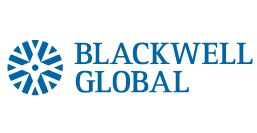Problem solved after Cyprus deal?
Published by Gbaf News
Posted on April 1, 2013
4 min readLast updated: January 22, 2026

Published by Gbaf News
Posted on April 1, 2013
4 min readLast updated: January 22, 2026

By Jojo Liu, Currency Analyst at Blackwell Global
 The EURUSD jumped higher on the news that Cyprus has nailed down a deal with the EU officials to resolve its banking crisis. After weeks of uncertainty, the markets finally breathed a sigh of relief, and the silver lining is that NO DEPOSIT LEVY is imposed. But is that really the case? History repeats itself. Last March, we were so concerned about the outlook of Greece and then we were worried about Spain. So who will be next? Investors are still worried about the contagion and negative effects on the economy, which caused the EURUSD to fall to around 1.2750.
The EURUSD jumped higher on the news that Cyprus has nailed down a deal with the EU officials to resolve its banking crisis. After weeks of uncertainty, the markets finally breathed a sigh of relief, and the silver lining is that NO DEPOSIT LEVY is imposed. But is that really the case? History repeats itself. Last March, we were so concerned about the outlook of Greece and then we were worried about Spain. So who will be next? Investors are still worried about the contagion and negative effects on the economy, which caused the EURUSD to fall to around 1.2750.
So, what has been passed in the deal?
After 12 hours of negotiations, and just hours before the deadline set by the ECB-POLICY-RATES-82f6314e-6203-420b-bc8b-70a978546822>ECB, Cyprus agreed on a deal with the EU and the IMF.
1. Cyprus will receive its 10bn euros bailout by May.
2. The deal does not require a fresh vote from the parliament of Cyprus.
3. No deposit levy in all Cypriot banks.
4. Second largest bank (Laiki/Popular Bank), will be split and closed down gradually under the newly created Bank Resolution Framework.
a. Full contribution of equity shareholders, bond holders and uninsured depositors required in the restructuring.
b. The bad assets will be transferred into a “bad bank” and run down over time. (Laiki Bank will be gone).
c. The good assets and net deposits up to 100k euros in Laiki will be combined with Bank of Cyprus (BoC).
5. At both banks (“bad bank” and BoC), uninsured deposits above 100k euros will be FROZEN immediately and tapped by the government to partly raise the additional 5.8 bn required towards the bailout. Officials suggest that customers of BoC should expect to lose about 40% of the balance. As far as customers of the “bad bank” are concerned, their losses can amount up to 90% since they will regain part of their capital when the bank is liquidated.
6. ECB-POLICY-RATES-82f6314e-6203-420b-bc8b-70a978546822>ECB will provide liquidity to BoC. At the same time BoC will assume the existing 7 bn euro debt of Laiki Bank towards the ECB-POLICY-RATES-82f6314e-6203-420b-bc8b-70a978546822>ECB.
7. All insured depositors (less than 100k euros) in all banks will be fully protected in accordance with the relevant EU and national legislation.
8. The bailout fund (up to 10 bn euros) will not be used to recapitalise Laiki and/or Bank of Cyprus.
Who bears the losses?
So, there is no bank levy you say. However, after examining the above important bailout details, it is clear that the bank restructuring programme means bigger accounts with deposits over 100k euros will effectively be used to pay the 5.8bn euro price. And we should note that not all depositors who have more than 100k are necessarily the wealthy. They could be small to medium companies, which in turn would dampen the confidence to invest, not just in Cyprus alone, but also the whole EU region, as the rescue deal has introduced a whole new concept: BANK DEPOSITS ARE NO LONGER RISK FREE.
What investors fear the most is that the bailout model, which is tax on deposits, could become the new standard in the future, according to the Eurogroup head Dijsselbloem.
Thousands of workers will be out of a job after the closing of Laiki Bank. This is likely to deepen the recession in the region, and spike up the unemployment rate, especially when the PMI in France and Germany are worsening at the same time.
The other party worth mentioning is Russian depositors. Many Russian companies and individuals hold roughly $30 billion in assets. As an economy that focuses on the banking sector, the government has marketed the region as a “tax haven” for the past few years. Asking foreign investors to bail out its failing banks will also decrease the amount of foreign investments. As PM Medvedev quoted, “The stealing of what has already been stolen continues”, and the trade relationship between Russia and the EU could be broken as well.
What’s next?
The fears of contagion in the region could spark bank runs in Cyprus and other periphery countries. The unstable Italian political deadlock is also weighing on the EURUSD. There are many uncertainties ahead, but one thing for sure is that the bailout deal will not resolve the crisis.
This is an opinion piece submitted by Blackwell Global.
Explore more articles in the Top Stories category











